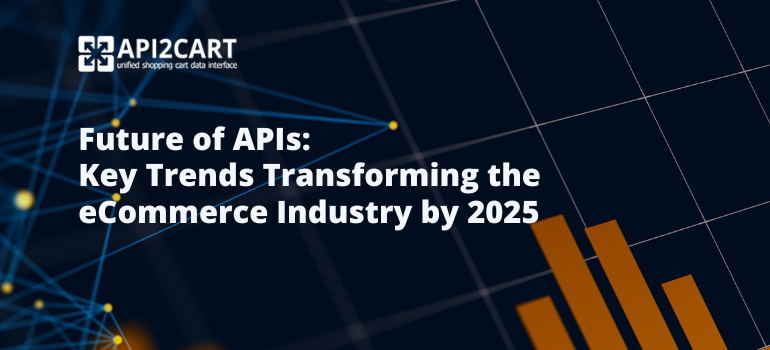
Mobile commerce has become one of the major channels for shopping. Consumers rely more and more on their smartphones and merchants become more and more creative in ways of applying mobile technologies to drive profits.
According to eMarketer, world expenses on mobile commerce will increase up to $2.91 trillion in 2020. It is evident, that m-commerce will improve and grow faster than we can even imagine.
So what should we expect from m-commerce in the coming years?
Shopping Apps
 Mobile apps harbor far more opportunities for engaging customers than websites or mobile sites do. Moreover, apps are far more convenient to use on various portable devices. According to the Opera Mediaworks research, 37% of consumers already prefer in-app shopping over Mobile Sites (23%). It is expected that the 40% of indifferent consumers will gradually grow towards Shopping Apps too, as Shopping Apps more customized to their needs and they provide a smoother check-out. What is more, Google is launching app indexation and ranking, so this will encourage business owners to get their app developed even more.
Mobile apps harbor far more opportunities for engaging customers than websites or mobile sites do. Moreover, apps are far more convenient to use on various portable devices. According to the Opera Mediaworks research, 37% of consumers already prefer in-app shopping over Mobile Sites (23%). It is expected that the 40% of indifferent consumers will gradually grow towards Shopping Apps too, as Shopping Apps more customized to their needs and they provide a smoother check-out. What is more, Google is launching app indexation and ranking, so this will encourage business owners to get their app developed even more.
The Rise of Hyperlocal Advertising
Targeting advertising is what makes ads more relevant and effective. Modern technologies give advertisers the possibility to target users across the country, region, or city. This is important for the success of m-commerce campaigns, but local targeting, which is a more advanced technology, can be way more efficient.
Using the information about the location of a mobile user, advertisers can target very definite segments of users. This type of targeting allows brick & mortar store owners to use mobile ads to attract clients at the moment when they are close to the point of sale. Meanwhile, the mobile commerce industry doesn’t use all the potential of geo-targeting, but this is going to change in the recent time.
Mobile Payments
 Despite the fact that mobile wallets haven’t gained much popularity during the last year, they are sure to stay. The first reason for that is the popularization of point-of-sale systems in physical stores, and the second is the ease of use for the customer. The number of retailers who are changing their POS system in order to accept mobile payments (the same way as credit card payments) increases rapidly. So, the coming years will bring us a new type of customer, who will pay easily with his mobile phone rather than a credit card. The top giants in the mobile industry have presented their own version of mobile wallet (Apple Pay, Android pay, Samsung pay, CurrentC, Walmart pay).
Despite the fact that mobile wallets haven’t gained much popularity during the last year, they are sure to stay. The first reason for that is the popularization of point-of-sale systems in physical stores, and the second is the ease of use for the customer. The number of retailers who are changing their POS system in order to accept mobile payments (the same way as credit card payments) increases rapidly. So, the coming years will bring us a new type of customer, who will pay easily with his mobile phone rather than a credit card. The top giants in the mobile industry have presented their own version of mobile wallet (Apple Pay, Android pay, Samsung pay, CurrentC, Walmart pay).
Mobile payments also provide a better level of security than credit cards. Mobile payments use tokenization, which means that the merchant will not know your card number, which defense you from being harvested in a data breach. Such retailers as Apple Stores, McDonald’s, Best Buy, Toy”R”Us, Sephora, RadioShack, Panera, Macy’s, Walmart already accept mobile payments.
M-commerce Will Catch Up with eCommerce
A significant number of people would use their smartphones rather than a desktop for accessing the internet (for shopping purposes as well). A few years ago nearly 40% of sales on Black Friday were made via a mobile device. That is 10% more compared to the previous year. According to statistics, 40% of users leave the page after a bad mobile experience. Moreover, 84% have faced difficulties completing mobile transactions. This indicates a great opportunity for companies to get profit from customer conversion by developing mobile responsive websites.
If you run a mobile app builder or any other B2B eCommerce app, you know how important the synchronization of your system with shopping carts is. The process of integration with shopping platforms is fairly complicated, though. It is both time and resource demanding venture.
Fortunately, there is a much more simple and efficient solution: API2Cart. It provides a single API to establish data integration between your app and 60+ shopping carts. With API2Cart, you can work with all leading shopping cart platforms including Magento, WooCommerce, BigCommerce, OpenCart, Shopify, and many others. Want to learn more? Schedule a consultation with our representative or try how API2Cart will work with your business by registering an account.



